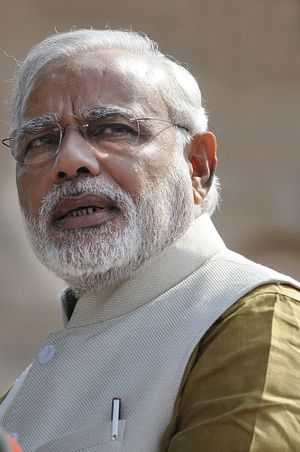In an exclusive scoop, Foreign Policy reported that “Indian Prime Minister Narendra Modi will not address a joint session of Congress during his visit to the United States in September, his first since becoming the country’s leader.” The information was revealed by a July 30 letter written by United States Speaker of the House of Representatives John Boehner to Modi. The letter was acquired by Foreign Policy.
The previous two prime ministers of India, Atal Bihari Vajpayee and Manmohan Singh both addressed the U.S. Congress.
This is disappointing news for many in India and the United States who hoped that a U.S. invitation to address Congress would be a historic chance to strengthen ties. Many also hoped that an invitation to address a joint session of Congress would be a way for the U.S. to make amends with Modi after a previous policy that denied him a U.S. visa for several years — for alleged involvement in a religious riot in 2002 — before he became prime minister. An invitation to address Congress in this manner is considered the highest honor Congress can bestow on a foreign leader.
The lack of an invitation to address Congress, however, should not be construed as a snub directed at Modi. The Indian government, which is sometimes prickly, should be understanding of this and not make a mountain out of a molehill. Rather, Modi will not be invited to address Congress because Congress might not be in session during his visit, a circumstance dictated by domestic political factors in the United States. In fact, there is strong bipartisan support for improved relations with India and the Modi government in the U.S. There are at least eight letters circulating around Congress calling for Modi to address it. One of the most recent had 80 Republican and Democrat signatories and urged Speaker Boehner to invite Modi to address Congress.
Despite the various domestic and international issues facing the United States, Republican leadership in the U.S. House of Representatives is likely to call for an early recess of Congress in September ahead of mid-term elections in November. The point of the recess is to allow lawmakers to focus on their re-election campaigns. This decision rankled many Democrats, with a spokesperson for Rep. Joe Crowley (D-N.Y.), co-chairman of the Congressional Caucus on India and Indian-Americans, saying, “The last thing Congress needs is another vacation when there are pressing issues at stake, and that includes hearing from the leader of one of our most important, strategic allies.”
However, in his letter to Modi, Boehner was conciliatory, explaining that but for the “unpredictability of the House schedule,” Modi would have been extended an invitation. Moreover, he extended an open invitation for Modi to address Congress at a later date. “I would be very interested in exploring with you the possibility of a visit to the United States Capitol and an address to a joint meeting of Congress should your travels bring you back to our country in the months and years ahead,” Boehner stated in his letter.
Prime Minister Modi does not have much to worry about. The U.S. seems keen on improving relations with India, as the string of high-profile visits by U.S. officials recently has demonstrated. The Indian government should now focus on making the bilateral meeting between Modi and U.S. President Barack Obama this September as productive and successful as possible.

































